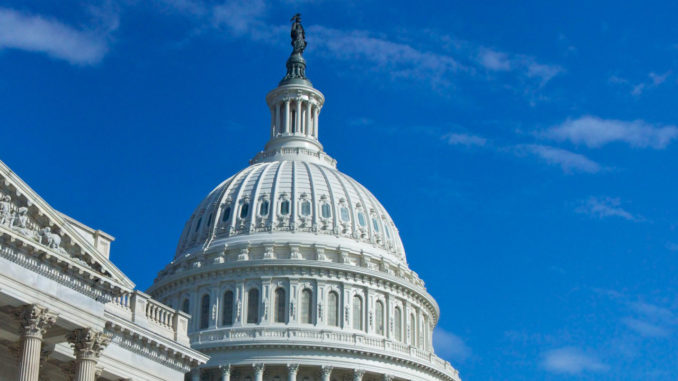
In May of 2016, a bill referred to as the “Countering Foreign Propaganda and Disinformation Act of 2016” was introduced in both the House and the Senate. Shortly afterwards, it was referred to the House Committee on Foreign Affairs, where it appears to have stalled, and the world breathed a collective sigh of relief.
This bill’s intent was to establish a “Center for Information Analysis and Response” whose role was to coordinate between different government agencies to analyze foreign propaganda and, among other things, cooperate with and give grants to civil society groups, journalists, NGOs, R&D centers, private companies, or academic institutions to develop counter-narratives and fight propaganda.
In summation, this bill will set up a big government center to work with all the three letter agencies, paying private institutions to produce propaganda of our own to counter those pesky Ruskies.
However, advocates for the bill, Senators Rob Portman (R-OH) and Chris Murphy (D-CT), have informed us that the bill is back, and if you read the fine print it looks worse than ever. It’s been introduced as part of the 2017 National Defense Authorization Act (NDAA), versions of which has already passed the House and Senate and are now undergoing reconciliation before being sent to the President.
Although most of the NDAA version is a copy-paste job from the former versions of the bill, there are a few changes. First of all, the center has been renamed from “Center for Information Analysis and Response” to the much more PR-friendly “Global Engagement Center”. What is most concerning that one clause introduced in the Senate version of the original “Countering Foreign Propaganda and Disinformation Act of 2016” was removed before being added to the NDAA. The idea of our government directly sponsoring the production of propaganda (or “counter”-propaganda) for domestic consumption tends to make people uncomfortable, and so the Senate version of the bill originally contained text that limited the role of the center to act “only with the intent to influence foreign audiences.” This is no longer present in the NDAA version, expanding the role of the center to allow for the production of government sponsored “counter”-propaganda for domestic consumption as well.
This type of measure brings many concerns to mind immediately. The first and most obvious one is that by having a portion of a journalist’s earnings come directly from government grants being paid for purposes of establishing a pro-US narrative, they lose their ability to remain independent. This isn’t quibbling over a minor issue of journalistic integrity. The most basic function of journalism is to maintain an appropriate level of independence so as to serve the public. If they are directly accepting grants from a government center to push specific pro-government narratives, that independence goes out the window.
But, an issue that I am sure is near and dear to our reader’s hearts is the ability to vote with your wallets and eyeballs when it comes to the news media that they support. That ability is about to be severely gimped thanks to the enactment of this provision of the NDAA. If the ability to profit off of a work of journalism is no longer tied to its ability to draw viewers, as it is currently structured, then the ability for consumers to stage boycotts of media found to be dishonest, low-quality, or malicious becomes much more difficult. While the current media landscape has its own set of perverse incentives, where corporate sponsorship and ad dollars pay for much what you consume, this new system will be even worse. While the current incentive structure prioritizes the production of cheap clickbait that attracts clicks and eyeballs regardless of the factual nature of what is being reported, replacing it with a system where the government can directly invest in journalism to propagate narratives that they see as beneficial to the mechanisms of the state is much much worse.
Consider the intersection of these two and what the media landscape of the future will look like. My prediction is that we will see a NEW kind of clickbait. Clickbait which is serving not just to attract views, and therefore private investors, but is also intended to influence people to accept establishment narratives favored by the government. And, once people notice this cancer eating away at journalism, their main tools to deal with the problem (staging boycotts and contacting sponsors) will no longer be effective.
It’s almost too late to do anything about this. The only thing this bill is waiting for is the President’s pen, and no president is going to attempt a veto of the National Defense Authorization Act. All I can call for is that we remain more vigilant in the future so that the government does not take any more vectors for consumer advocacy away from us.

At least they passed it too late to save Gawker… Just one more year, and Denton would have been leading a bulletproof taxpayer-funded institution.